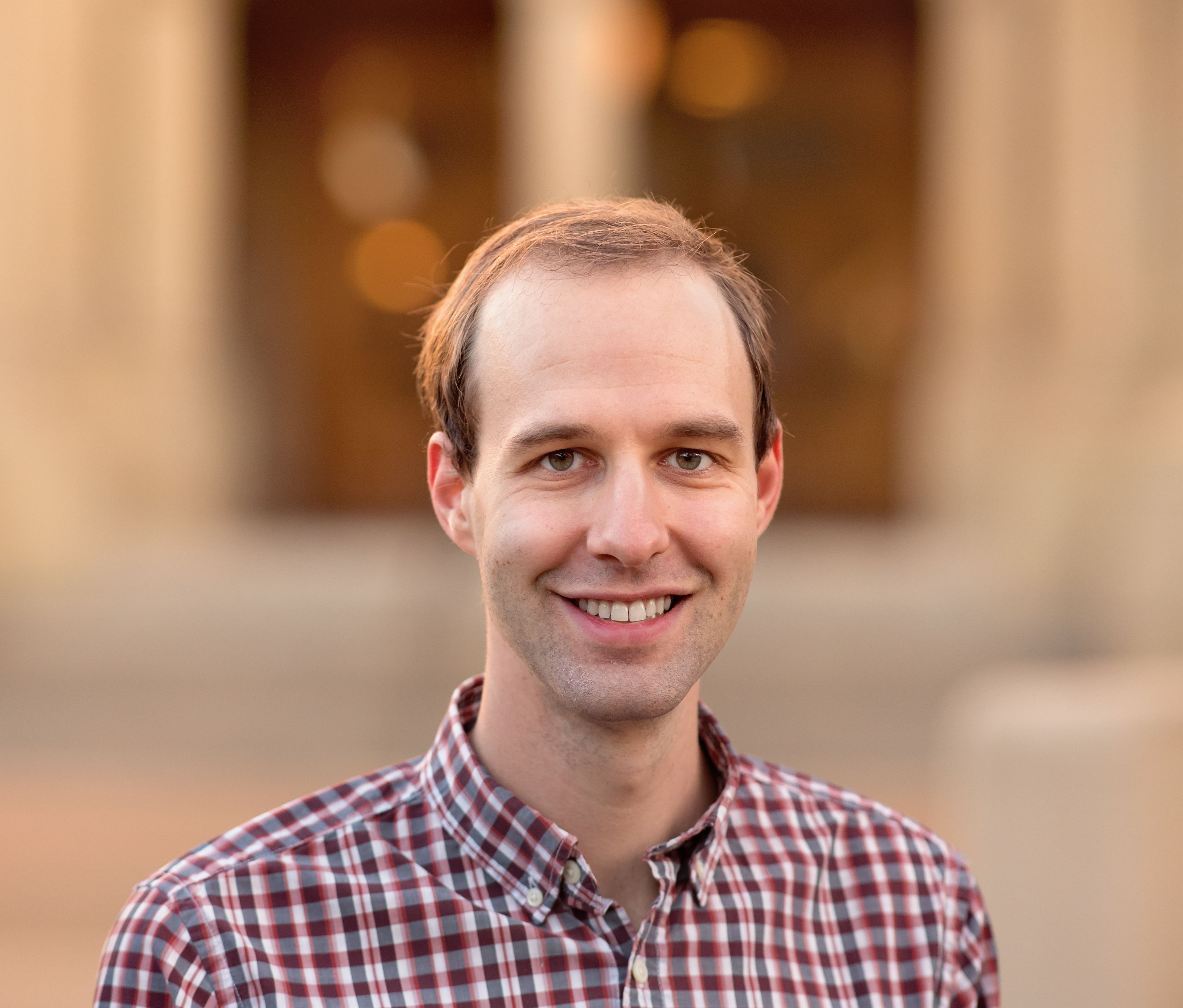Bradley J. Nelson

Contact
Email: firstnamelastname@protonmail.comLocation: New York, New York
GitHub: bnels
Google Scholar
I am now employed outside of academia - you can contact me at firstnamelastname@protonmail.com (with appropriate substitutions).
I am a William H. Kruskal Instructor in the Department of Statistics at the University of Chicago. I completed my PhD at the Institute for Computational and Mathematical Engineering (ICME) at Stanford Univesity in June 2020, advised by Gunnar Carlsson and co-advised by Jonathan Taylor.
My primary research interests are in applied and computational algebraic topology, particularly topological data analysis. I am interested in the interface between applied/computational topology and other areas of mathematics, data science, and computing.
News
Announcements
-
May 2022 New preprint with Lek-Heng Lim: What is an equivariant neural network? -
May 2022 New preprint on Parameterized Vietoris-Rips Filtrations via Covers -
January 2022 New preprint with Yuan Luo: Topology-Preserving Dimensionality Reduction via Interleaving Optimization -
Winter 2022 I am teaching a course on Scientific Computing with Python and a course on Topological Data Analysis.
Research
Overview
My primary research focus is on topological data analysis. This is a relatively young branch of applied mathematics, rooted in the more classical subject of algebraic topology. The general goal is to learn something about data using various topological invariants, and a popular tool is persistent homology.
More broadly, I am interested in applied mathematics, machine learning, and data science.
Recent/Current Projects
- DARPA HR00112190040: Topolgical Control for Time-Aware Machine Intelligence. 2020-2022. With Lek-Heng Lim. Developing and applying tools from topological data analysis to neural networks for temporal reasoning.
-
Persistent and Zigzag Homology: A Matrix Factorization Viewpoint.
G. Carlsson, A. Dwaraknath, B. J. Nelson.
[arXiv:1911.10693] [Code on GitHub] -
Accelerating Iterated Persistent Homology Computations with Warm Starts.
Y. Luo, B. J. Nelson
[arXiv:2108.05022] Code in BATS. -
Topological Regularization for Dense Prediction.
D. Fu, B. J. Nelson
[arXiv:2111.10984] Code forthcoming.
Publications
-
Clustering of Electromagnetic Showers and Particle Interactions with Graph Neural Networks in Liquid Argon Time Projection Chambers Data.
F. Drielsma, et al.
Phys Rev. D 104, 072004 (2021) [Link] -
A Topology Layer for Machine Learning.
R. Bruel-Gabrielsson, B. J. Nelson, A. Dwaraknath, P. Skraba, L. J. Guibas, G. Carlsson.
AISTATS 2020. [arXiv:1905.12200] [Code on GitHub] -
Texture Based Classification of Seismic Image Patches Using Topological Data Analysis.
R. Sarkar, B. J. Nelson.
81st EAGE Conference and Exhibition 2019. DOI: 10.3997/2214-4609.201901608. -
Boundary integral equation solution of high frequency scattering from obstacles in an unbounded linearly graded-index medium.
A. H. Barnett, B. J. Nelson, and J. M. Mahoney.
Journal of Computational Physics 297C:407-426, 2015. -
Chiral Polymerization in Open Systems From Chiral-Selective Reaction Rates.
M. Gleiser, B. J. Nelson, and S. I. Walker.
Origins of Life and Evolution of Biospheres 42:333-346, 2012.
PhD Dissertation
-
Parameterized Topological Data Analysis. Bradley J. Nelson.
Ph.D. dissertation. Stanford University. June 2020.
[link][defense slides]
Older, Unpublished Projects
-
Sparse canonical correlation analysis.
X. Suo, V. Minden, B. Nelson, R. Tibshirani, M. Saunders.
arXiv:1705.10865
Talks and Presentations
-
02.18.2022 Vietoris-Rips Seminar
Parameterized Vietoris-Rips Filtrations via Covers. [slides] -
03.01.2021 SIAM CSE, Minisymposium on Emerging Directions in Computational Topolgy
Parallel Computation of Zigzag Homology using Matrix Factorizations. [abstract] [slides] -
01.08.2021 Joint Mathematics Meetings, AMS Special Session on Applied Topology
A fibration model for d-dimensional image patches. [abstract] [slides] -
11.05.2020 CAAM Colloquium, University of Chicago
Topological Data Analysis, Linear Algebra, and Optimization. [announcement] [slides] -
05.03.2019 Stanford Exploration Project Seminar
Stanford, CA [slides] -
10.01.2018 AI at SLAC seminar
Stanford Linear Accelerator (Menlo Park, CA) -
08.11.2017 Applied Algebraic Topology 2017
Hokkaido University (Sapporo, Japan) [slides] -
08.01.2017 SIAM Algebraic Geometry 2017
Atlanta, GA [slides]
Teaching
University of Chicago
-
Winter 2022 (previous: Winter 2021)
STAT 37411=CAAM 37411 - Topological Data Analysis.
[Course Description] [GitHub] [Website]
Graduate-Level topics course on Topological Data Analysis. -
Winter 2022 (previous: Fall 2020)
STAT 37830=CAAM 37830 - Scientific Computing with Python.
[Course Description] [GitHub] [Website] [Reader]
For students getting started with scientific computing. Covers the Python language and its numerical libraries, as well as use of computing resources.
Stanford University
-
Fall 2018 CME 193 - Introduction to Scientific Python.
[Explore Courses] [GitHub] [Website]
Introduction to Python and its popular scientific computing libraries. -
Spring 2018 CME 258 - Libraries for Numerical Linear Algebra and Optimization.
[Explore Courses] [GitHub]
Designed and co-taught with Ron Estrin. Introduction to different libraries for numerical linear algebra and optimization. -
Winter 2018 CME 257 - Advanced Topics in Scientific Computing with Julia.
[Explore Courses] [GitHub]
Updated for Julia v0.6.2, and added a new lecture on metaprogramming. -
Fall 2015 CME 257 - Advanced Topics in Scientific Computing with Julia.
[Explore Courses] [GitHub]
This is a new course that I created to introduce the Julia language to students interested in using it for development/research.
Miscellaneous
-
Questions about mathematical modeling or algorithms?
Come by Computational Consulting.
A service offered by ICME graduate students.